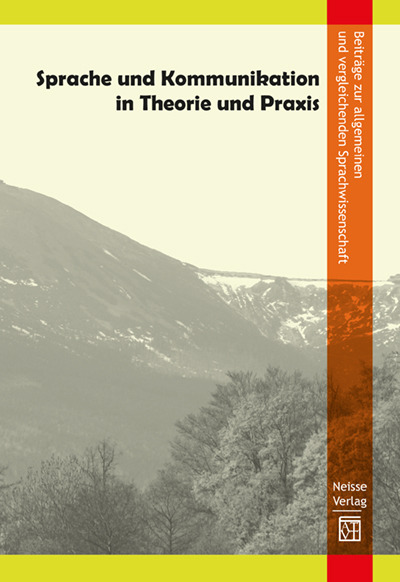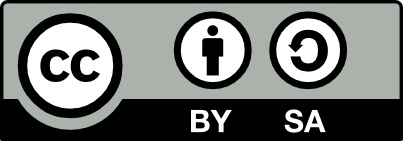
Beiträge zur allgemeinen und vergleichenden Sprachwissenschaft / Contributions to General and Comparative Linguistics
Issue 5 (2016): Sprache und Kommunikation in Theorie und Praxis
Edited by: Edyta Błachut, Adam Gołębiowski
Grammatikunterricht als Mittel der Indoktrinierung? Sprachliche Belege aus einer (nicht allzu fernen) Vergangenheit / Grammar lessons as a means of indoctrination? Linguistic evidence from the not so remote past
published online: 2021-05-01
pp. 7–37
Keywords: handbooks for German grammar, indoctrination, ideologically marked sentences
The aim of this paper is to show how German grammar handbooks had been used as a means of indoctrination, especially in the former GDR. To analyze this problem, more than 350 sentences which were all chosen for their ideological character were collected in a database-like table. The next table column shows how the authors replaced those ideologically marked sentences with neutral ones. The great variety of possible replacements is staggering. The collected data may serve as a basis for further sociolinguistic and pragmatic studies on the so called newspeak, a quasi-language used for propaganda purposes in the Middle- and Eastern Europe under communist regimes.
Zur Metaphorik ausgewählter syntaktischer Konstruktionen / On the metaphorical view of selected syntactic constructions
published online: 2021-05-01
pp. 39–47
Keywords: metaphors, conceptual metaphor theory, personification, syntactic constructions
This paper concerns the approach by Taylor (2001) according to which some types of syntactic constructions are perceived as a kind of metaphor. First, the term “metaphor” is explained on the basis of the conceptual metaphor theory by Lakoff/Johnson (1980, 1999). In the next step, Taylor’s approach is introduced and the metaphorical view of syntactic constructions – according to Taylor’s ideas – discussed. Other approaches (e.g. Goschler 2008, Strietz 2007) are presented and discussed. There are concerned alternative ways of understanding and describing of the above mentioned phenomenon. Based on these results, the analysis of the selected examples is carried out.
Kognitive Definitionen im Text und Diskurs. Ein Versuch der Rekonstruktion der kognitiven Definition von „Freiheit“ anhand des Materials aus deutschen Presseartikeln / Cognitive definitions in text and discourse analysis. An attempt to reconstruct the cognitive definition of “freedom” on the basis of empirical data from German press articles
published online: 2021-05-01
pp. 49–73
Keywords: cognitive definition, cognitive linguistics, freedom, linguistic image of the world
By means of the concept of a cognitive definition the cognitive ethnolinguistics is able to analyse the conceptual content activated by particular lexical units. In this paper we aim to reconstruct the cognitive definition of “freedom” on the basis of empirical data from German press articles. In the analysis we focus on identifying meaning and usage variants of the word “Freiheit” (engl. freedom) and compounds with the head -freiheit as well as conceptual categories which constitute the concepts of freedom typical of particular variants.
Das Sprachhandlungsmuster Drohung im Deutschen und Polnischen: eine typologisch-vergleichende Analyse / The speech behaviour pattern of threat in German and Polish: a typological-comparative analysis
published online: 2021-05-01
pp. 75–94
Keywords: speech behavior, threat, intercultural communication, contrastive linguistics, Polish, German
The paper presents the analysis of the speech behaviour pattern of threat in German and Polish. In the first part of the paper, the general characteristics of the speech behaviour pattern of threat are given and their illocutions in terms of Natural Semantic Metalanguage are defined. Contrastive research is looked at from three different angles. First, from a structural point of view, main realization patterns of threat are described in different languages. Second, from the pragmatic point of view, it is considered whether and how the situations in which Germans and Poles use threats are different. And third, how to use threats in German and Polish is described using the method of the communicative-pragmatic field. The peculiarities of the field organization in these languages are discussed.
Zum Gebrauch von Parenthesen in deutschen und polnischen wissenschaftlichen Texten / Towards the use of parentheticals in German and Polish academic texts
published online: 2021-05-01
pp. 95–107
Keywords: parentheticals, academic writing, contrastive linguistics
The present study analyses the use of parentheticals in German and Polish academic texts and discusses the foundations of future (more extensive) corpus-based analysis of this phenomenon in academic writing. The paper begins by briefly reviewing problems with defining and describing parentheticals in German and Polish grammars. Afterwards the typical features of parentheticals in both languages are presented. The final section discusses the use of these constructions in German and Polish academic writing (on the examples of philological texts).
Memorialkultur um Konrad Duden in Deutschland / Culture of memory of Konrad Duden in Germany
published online: 2021-05-01
pp. 109–129
Keywords: Konrad Duden’s life, Konrad Duden’s work, the reformer of the German writing system
This article investigates whether remembrance of Konrad Duden is kept alive by contemporary Germans and whether he still bears any importance to them. The article provides, first, some information on Duden’s life, the places in which he lived and worked and how these places look today. Secondly, the linguist’s activity in the towns Wesel, Soest, Schleiz and Bad Hersfeld is traced and documented. The last part of the article assesses living Germans’ knowledge of Duden and the associations his name evokes in them. In order to back the conclusions empirically the results of a questionnaire conducted among 100 people without philological education are presented. It can be showed that remembrance of Konrad Duden is still lively. It is particularly widespread at the places he had worked in and of significant importance outside. He is considered as the reformer of the German writing system who also strengthened the sense of unity in Germans.
Zum kommunikativen Aspekt von „Default Value“ im Polnischen / The communicative aspect of “default value” in Polish
published online: 2021-05-01
pp. 131–144
Keywords: Generative syntax, Communicative impact of (language) structures, Default value
The focus of the paper are constructions in the Polish language in which the finite form of the verb is marked with the 3rd person singular agreement flexeme but not aligned with any subject component. It will be shown that the internal structure of the agreement phrase affects the possibilities of subject interpretation and thus also the communicative function of a given sentence in different ways. In light of this result the syntactic bundle of features in the agreement phrase are investigated which in particular factual circumstances allow to interpret the subject as agent. The departure point is the notion of default value (DV). DV is assumed to control the possibilities of subject interpretation at the communicative level. The analysis is based on the rules of the Principles and Parameters framework as well as the Minimalist Program by Chomsky.
Assimilationstendenzen in Konferenzvorträgen. Eine korpusbasierte Studie / Assimilation trends in academic talks. A corpus-based analysis
published online: 2021-05-01
pp. 145–160
Keywords: phonetic assimilations, spoken German, academic language, auditory perception, GeWiss corpus
The purpose of this paper is to describe some examples of phonetic assimilation in spoken academic German. The study is based on orthographic transcriptions of talks including discussions made by German native speakers. The linguistic data are taken from the GeWiss corpus, which provides audio recordings and transcriptions of academic communications. The research organizations involved were the Herder Institute at the University of Leipzig, Wrocław University and Aston University in Birmingham.
Einige Bemerkungen zur semantischen Valenz der deutschen und dänischen Bewegungsverben / Some comments on the semantic valency of German and Danish motion verbs
published online: 2021-05-01
pp. 161–179
Keywords: semantic valency, motion verbs, didactics, translation, German, Danish
The analysis of the semantic valency is without a doubt very important especially for the didactics and translation. The article is an investigation of contrasts, which touch upon semantic valency of German and Danish motion verbs. The analyzed material consists of verbs, which have the same syntactic valency but differ in semantic valency. The analysis is focused on differences related to contrasts in semantic restrictions and semantic roles.
Hör- und Geruchswahrnehmungen im Deutschen und Polnischen – ein sprachlicher Vergleich und dessen theoretisch-methodologische Implikationen / Comparison of auditory and olfactory expressions in German and Polish and its theoretical and methodological implications
published online: 2021-05-01
pp. 181–200
Keywords: olfactory and auditory perception, sense hierarchy, basic (color) terms, onomatopoeia
Concerning the Aristotelian hierarchy of the senses, hearing as the higher sense should be lexically diversified and rich in the basic terms, as the visual modality is. This paper suggests that, on the contrary, auditory perception is very limited in this respect and resembles olfaction. Even the onomatopoetic expressions, which could be viewed as a sign of lexical richness of hearing, should be regarded a mere source reference strategy.
Zu methodologischen Grundlagen von PPT und MP / Methodological foundations of P&P and MP
published online: 2021-05-01
pp. 203–216
Keywords: generative syntax, Principles und Parameters framework (P&P), Minimalist Program (MP), universal grammar, transformation, processing mechanism, structure construction
Zu methodologischen Grundlagen der linguistischen Arbeit am Beispiel des Korpus zur gesprochenen Wissenschaftssprache (GeWiss) / Methodological basis of linguistic analysis of the spoken academic language
published online: 2021-05-01
pp. 217–227
Keywords: GeWiss corpus (https://gewiss.uni-leipzig.de/), spoken German / Polish / English, academic language, science
Kognitive Semantik – ein methodologisch-theoretischer Grundriss / Methodological and theoretical foundations of Cognitive Semantics
published online: 2021-05-01
pp. 229–246
Keywords: methods in Cognitive Linguistics, Cognitive Semantics, Prototype Theory, The Conceptual Metaphor Theory, Blending-Theory, Frame Semantics

